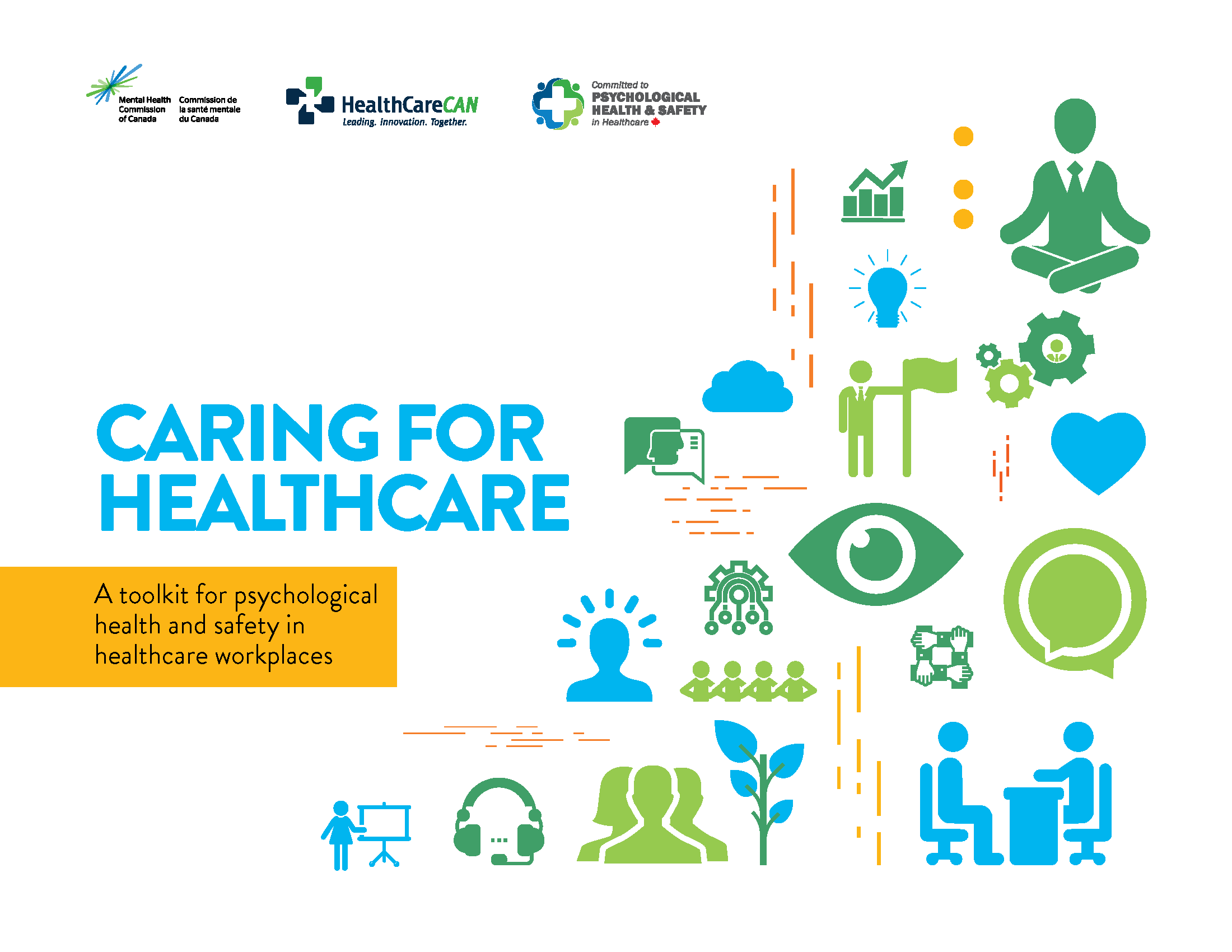Mental Health Commission of Canada Caring for Healthcare toolkit
Following the publication of the National Standard of Canada for Psychological Health and Safety in the Workplace, the Mental Health Commission of Canada (MHCC) called on Ascribe to develop a comprehensive toolkit to help healthcare organizations implement the Standard and better protect the health and well-being of their own teams.
How Ascribe helped
Mental health problems are the leading cause of short- and long-term disability in Canada, with far-reaching impacts on individuals, their families and friends, and the economy. Nurses, doctors and others in the healthcare sector are at especially high risk: they are frequently overworked, but their professional and personal ethics often lead them to deprioritize their own well-being in favour of their patients’. The MHCC commissioned the 'National Standard of Canada for Psychological Health and Safety in the Workplace', published in 2013, to help organizations in all sectors promote mental health and prevent psychological harm at work.
In 2018, we helped the MHCC create a healthcare-specific toolkit showcasing the work of healthcare organizations that had implemented the Standard, including advice, lessons learned and practical tools senior healthcare decisionmakers can use to support the mental health of their own workers. We started by working with the MHCC to develop a new structural approach for this toolkit that would be more engaging and broadly appealing than the previous, more academic toolkits the organization had produced.
Ultimately, the toolkit was centred on narratives about the journeys and milestones of four healthcare organizations across the country. We interviewed the organizations, then drafted short stories about each and distilled their experiences into eight common core principles for effective implementation of the Standard. In the toolkit, these principles were presented as practical tips and accompanied by related tools the organizations had created or used to support their own initiatives. The final phase of the project involved collecting and organizing a library of almost 40 resources, and coordinating with our design partner Accurate Creative to produce the final toolkit.
With its practical, real-world examples, the Caring for Healthcare toolkit highlighted the wide variety of ways healthcare organizations can protect and support workplace mental health. MHCC project stakeholders were very pleased with the result, which is available on the MHCC website. Its success has led to the creation of other toolkits that Ascribe also supported, including one on how to tackle structural stigma in healthcare settings.

Deliverable: Resource toolkit
Our process:
- Background material review
- Content-gathering interviews with healthcare organizations
- Creative concept development and structural approaches
- Detailed content outline
- Writing and revisions
- Asset identification and collection
- Coordination with design partner
 Back
Back
 Annual reports
Annual reports
 Blogs and articles
Blogs and articles
 Brand messaging and taglines
Brand messaging and taglines
 Content and editorial planning
Content and editorial planning
 Copyediting and proofreading
Copyediting and proofreading
 Event coverage and reporting
Event coverage and reporting
 Marketing campaigns
Marketing campaigns
 Presentations and speeches
Presentations and speeches
 Video scripts
Video scripts
 Web content
Web content
 White papers
White papers
 2 min read
2 min read
 White papers
White papers







